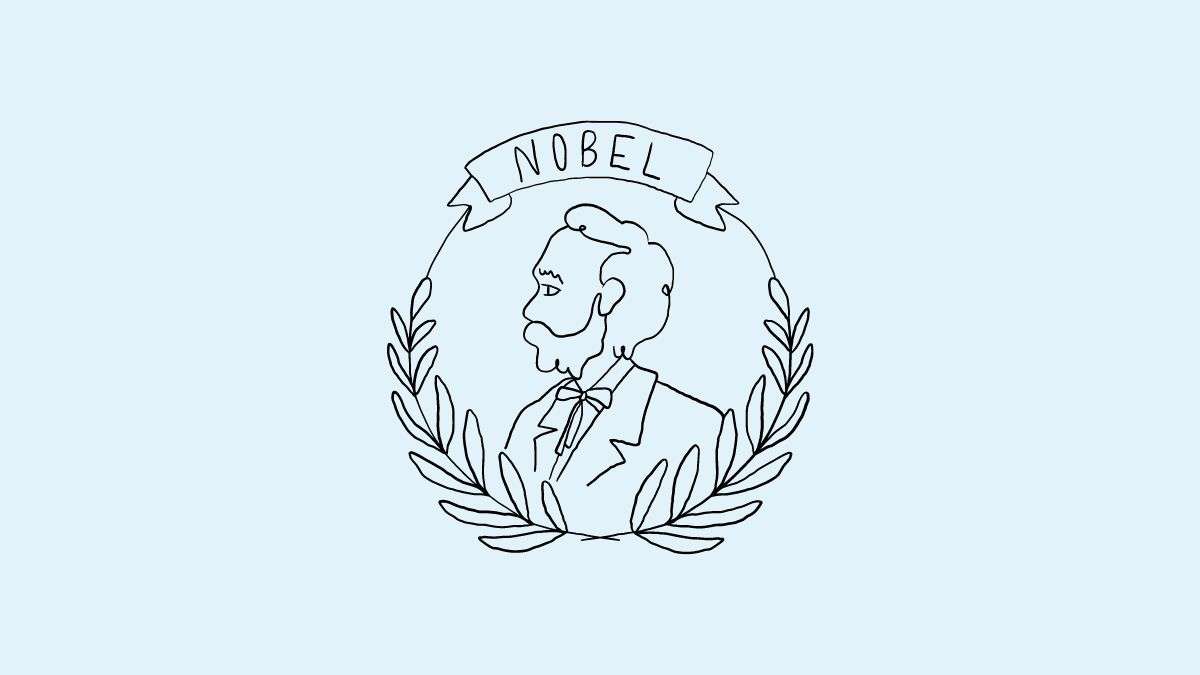Table of Contents
- Introduction
- Understanding the Nobel Prize
- How to Win the Nobel Prize: The Worthy Ideas
- Overcoming Challenges and Setbacks
- Communicating Impactful Research
- Ethics and Integrity in Research
- Conclusion – The Journey Forward
Introduction
The Nobel Prize stands as one of the highest honors an individual can achieve for advances in academia, humanitarian efforts, and the promotion of peace. Let us delve into how to win the Nobel Prize, a coveted trophy.
Since 1901, over 900 Nobel Prizes have been awarded to luminaries making breakthroughs in physics, chemistry, medicine, literature, economics, and peace. Winning carries tremendous clout, opening doors to funding, global platforms, and transformative progress.
A Nobel Prize winner gains an almost mythical status in their field and beyond. Their ideas and contributions reach wider audiences, catalyzing change worldwide. Take Malala Yousafzai, the youngest Nobel laureate, whose activism for girls’ education inspired policy changes and curriculum reforms across continents. Or Kailash Satyarthi, whose decades-long fight against child slavery led to over 80,000 children being freed and new international laws being enacted. Such is the prestige and influence tied to the Nobel Prize.
For scholars and scientists, the award accelerates research by attracting talent and financing. Nobel Laureate Carol Greider shared how prize money, fame, and networks fueled her study of telomeres and cancer. Her lab grew from 2 to 22 people, collaborations expanded worldwide, and funding increased tenfold after winning. The resources empower laureates to actualize further innovations for humanity’s benefit.
In short, Nobel Prizes confer immense scientific, social, and financial capital upon their recipients. The awards expand the reach of laureates’ contributions and enable transformative progress at an even grander scale for the betterment of humankind.
Understanding the Nobel Prize
The Nobel Prize has a rich history stretching back to 1895 when Alfred Nobel, the Swedish chemist and industrialist, established the award in his will. The prizes were intended to recognize those who confer the “greatest benefit to humankind” in physics, chemistry, physiology or medicine, literature, and peace. An additional prize in economic sciences was added in 1968 by Sweden’s central bank.
History and Categories
The first Nobel Prizes were awarded in 1901, five years after Nobel’s death. The anniversary of Nobel’s death, December 10, was designated as the date to present the awards, which consist of a medal, diploma, and cash prize. The Nobel Foundation oversees the process of selecting and awarding prizes each year. There are now six annual Nobel Prizes spanning scientific fields as well as humanitarian efforts:
- Physics
- Chemistry
- Physiology or Medicine
- Literature
- Peace
- Economic Sciences
Over the past century, over 900 individuals and organizations have received Nobel Prizes for breakthrough discoveries, literary works of outstanding influence, and significant contributions toward peace and human progress.
Evaluation Criteria and Selection
The evaluation criteria differ slightly across the prize categories, but an overarching emphasis is on recognizing pioneering research, discoveries, or humanitarian work that confers excellent benefit to humanity. Work that breaks new ground and opens new opportunities for future progress is especially valued.
Hundreds of nominations from qualified nominators across the globe are considered each year. Renowned experts in each field carefully review the nominations and provide recommendations to the prize-awarding institutions. There is no set timeframe for recognizing achievements—awards can be granted many years or even decades after the landmark discoveries or literary works first appear.
Ultimately, the Nobel Prize highlights advances that dramatically push forward the frontiers of knowledge and progress. By recognizing such groundbreaking contributions, the prizes aim to inspire further generations to unleash their potential for the betterment of humankind.
How to Win the Nobel Prize: The Worthy Ideas
Generating ideas that have the potential to win a Nobel Prize requires nurturing originality, innovation, and societal impact. Truly groundbreaking concepts often emerge from questioning existing paradigms and bringing fresh perspectives. Researchers should not be afraid to challenge the status quo in their field or collaborate across disciplines. Nobel Laureates are often praised for thinking “outside the box” by combining insights from different domains to create new frameworks for understanding the world.
Emphasize the Value of Originality, Innovation, and Societal Impact
Ideas worthy of Nobel Prize consideration must be original and innovative in their approach. The work should mark a significant leap forward in human knowledge and capacity, whether developing a new theoretical model or a practical application. Most importantly, Nobel-caliber achievements have a resounding and demonstrable impact on society.
For example, the development of polymerase chain reaction (PCR) by Nobel Laureate Kary Mullis revolutionized DNA analysis through an unexpected combination of knowledge across specialties. By synthesizing insights from biochemistry, genetics, medicine, and engineering, Mullis conceived of a novel method to selectively amplify DNA sequences that became indispensable across the life sciences.
Interdisciplinary Collaboration and Diverse Perspectives
Interactions between researchers across different disciplines often kindle innovations. Diverse collaborations expose scientists and scholars to alternative ways of thinking, which can catalyze creativity. Nobel Laureates frequently credit their breakthroughs to brainstorming with colleagues from unrelated areas.
Likewise, diversity in research teams ensures that scientific questions are explored from multiple vantage points, reducing insular thinking. By proactively seeking inputs from domain experts and fresh perspectives from those outside their field, researchers can expand the scope and impact of their work.
In summary, nurturing Nobel-caliber ideas requires valuing originality, being willing to challenge conventions, collaborating across disciplines, actively seeking diverse inputs, and focusing on positive impacts on humanity.
Overcoming Challenges and Setbacks
Pursuing Nobel Prize-worthy achievements is a long, arduous journey filled with challenges and setbacks. Common obstacles faced by contenders include skepticism from the mainstream scientific community, difficulties securing funding and resources, and ethical dilemmas that arise from pushing boundaries.
Dealing with Skepticism and Criticism
When pioneering new theories or discoveries that challenge the status quo, Nobel hopefuls often encounter skepticism and criticism from established experts. It takes immense courage and conviction to persist despite others doubting or dismissing your ideas. Maintaining confidence in your work while listening carefully to feedback can help refine your approach to win over critics eventually. It is critical not to internalize attacks personally and to let your research speak for itself over time.
Securing Funding and Resources
Limited funding and access to equipment, data, and human capital can severely constrain Nobel-level research. Identifying unconventional sources of financial support through grants, partnerships, or other creative means is crucial. Building a talented team and network can also provide the expertise and manpower to drive breakthrough innovations. Leveraging existing resources in innovative ways demonstrates resourcefulness in overcoming practical obstacles.
Resolving Ethical Concerns
Pushing boundaries to make transformational contributions sometimes raises ethical questions. Nobel Prize contenders must grapple with responsibly moving research forward while considering complex social implications. Maintaining integrity and transparency around methods and intentions helps resolve issues ethically. Patience and willingness to have open dialogue around ethical concerns also facilitate resolutions that pave the way for eventual recognition.
Cultivating Resilience and Perseverance
The path to Nobel-worthy achievements requires returning from failures and rejections while persisting for years or decades. Grit, emotional strength, and long-term vision fuel the resilience and perseverance necessary to overcome obstacles. Expect rejections in your quest to achieve success.
Equally important is building a support network that encourages during the inevitable dark times when progress stalls. By leveraging self-care, community, and an unshakeable belief in your purpose, you can find the motivation to keep advancing your work until the world takes notice.
Communicating Impactful Research
Communicating one’s research and contributions is critical for amplifying impact and recognition. By articulating the significance of one’s work in clear and compelling ways, researchers can engage broader audiences that have the potential to create change.
Impactful research means little if it is not adequately understood and acted upon. Researchers must communicate their findings beyond academic publications to reach public, industry, and policy audiences. This involves translating complex concepts into accessible language without losing meaning. It also entails framing one’s work within broader societal contexts so that diverse groups recognize its relevance. Mastering communication channels like mainstream media, social media, and public talks is vital.
For example, highlighting real-world applications of one’s research through illustrative examples and stories can spark public interest. Analogies also effectively convey complex ideas to non-experts. Preparing simplified summaries, infographics, or audiovisuals to accompany research publications can further aid comprehension.
Researchers should actively participate in public outreach by giving public talks, hosting facility tours, engaging with science centers and museums, and mentoring students. These create interactive spaces to explain one’s work while receiving feedback to improve research directions.
Policy engagement involves providing expert testimony, participating in advisory committees, and submitting commentary during public consultations on proposed policies. This enables directing research applications to societal priorities. Partnerships with think tanks also allow bridging academic ideas with policy narratives.

On the global stage, building multilateral networks through international conferences, fellowships, data-sharing platforms, and grand global challenges can enable scaling research for worldwide visibility and impact.
Ultimately, researchers must move beyond academic publications to communicate their work through diverse avenues to reach all groups who could translate ideas into action with transformative potential.
Ethics and Integrity in Research
Conducting research that has the potential to win a Nobel Prize comes with significant ethical responsibilities and integrity. Researchers must consider how their work will impact society in the short and long term. As their ideas and discoveries gain influence, researchers have to ensure they are not misused to cause harm.
Upholding Rigorous Ethical Standards
Nobel-caliber research often pushes boundaries and brings innovative technologies or knowledge into being. However, researchers should thoughtfully consider the implications of their work at every stage. Establishing review boards, engaging diverse perspectives, and questioning assumptions are vital to upholding ethics. Additionally, researchers should adhere to established ethical codes and be transparent about their processes.
Ensuring Accessibility and Inclusion
Ideas that transform fields often emerge from increasing accessibility and embracing diversity of thought. Researchers are responsible for conducting outreach, mentoring future talent, publishing openly, and ensuring marginalized communities can contribute to and benefit from discoveries. Building collaborative networks across disciplines and demographics drives innovation.
Communicating Carefully
As research influences public policy or garners media coverage, extra care must be taken in communication. Speculation should be clearly distinguished from proven facts and limitations acknowledged. Researchers should avoid overstating claims and consider social interpretations and misusing ideas.
Research for the Common Good
Science in service of profit or power alone tends to cause long-term damage. The most revolutionary ideas create opportunity, spur imagination, and liberate human potential. Researchers who couple expertise with wisdom—and stay grounded in ethics—can create positive ripples over decades and centuries. Integrity and good judgment are the cornerstones of work that elevate humanity.
Conclusion – The Journey Forward
Pursuing a Nobel Prize is a long and winding road, full of challenges but also great rewards. This guide has provided critical insights into understanding the prize, nurturing groundbreaking ideas, overcoming obstacles, effectively communicating research, and upholding ethics and integrity.
A few key takeaways for aspiring laureates include:
- Originality, innovation, and real-world impact are essential for ideas that can transform fields and stand the test of time.
- Collaboration across disciplines and embracing diverse perspectives often spark creative breakthroughs.
- Perseverance in the face of skepticism and setbacks is critical—believe in your research and find allies who share your vision.
- Clear communication with global audiences amplifies the impact and builds crucial support for your work.
- Upholding rigorous ethical standards earns the trust and respect that cements your lasting contributions.
While the Nobel Prize represents the pinnacle of scientific achievement, the journey brings great fulfillment through expanding knowledge, helping others, and advancing civilization step-by-step. The real prize is in the daily joys of discovery, problem-solving, and overcoming challenges to create positive change. Awards may recognize these efforts but pale compared to the intrinsic rewards of following your passion.
